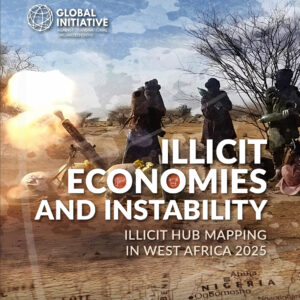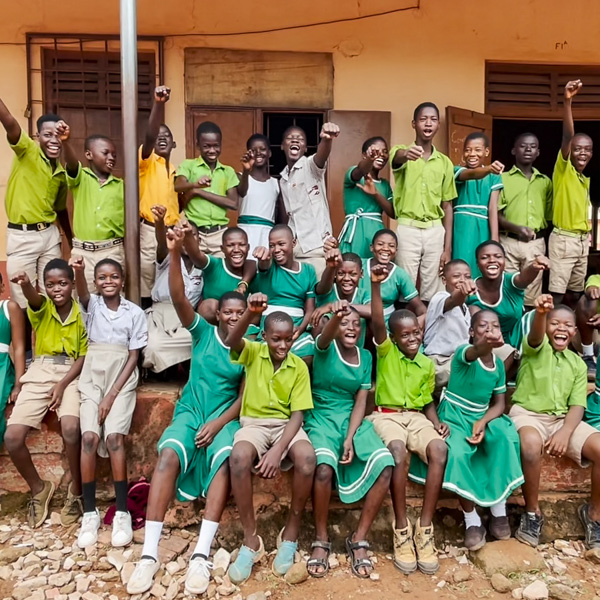Trafficked to Dubai: How Education Can Help Prevent Human Trafficking
Jennifer is a Nigerian woman rescued by our sister campaign, Send Them Home after she was sex trafficked to Dubai, United Arab Emirates in 2020. The Economist podcast followed Jennifer’s search for justice as she fights through the Nigerian courts to have her traffickers held to account. Locked up for four years and forced to have sex against her will with many hundreds of men, Jennifer’s story is harrowing. However many West African women lured to the UAE on promises of finding well paid employment suffer the same fate. As the founder of Hope Education Project (HEP), this story hits close to home, reinforcing our mission to use human trafficking education as a tool to prevent such tragedies.
Jennifer’s Story: A Survivor of Sex Trafficking in Dubai
The control Chidera exerted over Jennifer was more than just physical. Jennifer was made to take a juju oath at a shrine in Nigeria, a spiritual manipulation that bound her to her trafficker. This is a common practice used by traffickers to instil fear and ensure compliance. For four years, Jennifer endured unimaginable exploitation until, with the help of organizations like Send Them Home, she managed to escape and return to Nigeria. You can read her full story on the Send Them Home website.
How Trafficking Education Could Have Prevented This
At Hope Education Project, we believe that human trafficking education is key to preventing stories like Jennifer’s from becoming more common. Traffickers prey on vulnerable individuals, particularly in countries like Nigeria, where economic hardships, lack of education, and limited opportunities make many susceptible to false promises of work abroad.
Our human trafficking prevention program aims to raise awareness about the tactics used by traffickers, helping young people recognize the dangers before it’s too late. By educating communities about their rights, how to identify traffickers’ methods, and how to stay safe online, we can help stop trafficking at its source.
Jennifer calls the Send Them Home Team to tell them she's received all her travel documents for her repatriation from the UAE. She had accepted a job as a chef in a restaurant in Dubai but was held for sexual exploitation in Dubai by her Nigerian trafficker, Chidera, for four years.
Jennifer’s Rescue and Ongoing Fight for Justice
Jennifer’s escape was the beginning of a long road to recovery. She returned home to Nigeria, where she now fights for justice in a system that rarely prosecutes traffickers effectively. Her trafficker, Chidera, has been charged but has so far avoided meaningful punishment, highlighting the ongoing challenges trafficking survivors face in achieving justice.
The Send Them Home campaign, which I started in 2019, has helped many Nigerian women like Jennifer escape from Dubai and other trafficking hotspots in the UAE. We have seen the powerful impact of combining education, community awareness, and survivor support in breaking the cycle of exploitation. However, the legal and social systems in place still fail to protect many survivors, which is why education remains such a crucial part of the solution.
The Role of Education in Preventing Human Trafficking
Through our work at HEP, we strive to disrupt the flow of vulnerable individuals into the trafficking pipeline. Our education program targets at-risk youth in Northern Ghana, where poverty and lack of opportunity often push young people towards dangerous paths. By incorporating participatory theatre and interactive learning, our programs teach students about their rights, personal safety, and how to avoid falling victim to traffickers.
This type of anti-trafficking education not only empowers young people to protect themselves but also fosters resilience within communities. We focus on spreading awareness about the various forms of human trafficking, from sex trafficking to forced labour, and the strategies traffickers use to deceive their victims.
Trafficking in Dubai and the Need for Global Awareness
Jennifer’s story, as highlighted in The Economist, underscores the global scale of human trafficking. The UAE, and particularly Dubai, has become a major hub for trafficking, with thousands of women like Jennifer trapped in forced prostitution. The Global Slavery Index estimates over 132,000 people live in modern slavery in the UAE, many of them trafficked from countries like Nigeria.
This international dimension of human trafficking highlights the need for a coordinated global response. While governments and NGOs have made strides in combating trafficking, more needs to be done to address the root causes, particularly in countries that are both sources and destinations for trafficking victims. Education, at both a local and international level, is essential to these efforts.
Listening to Jennifer’s Story and Taking Action
Jennifer’s story is one of survival, but it’s also a call to action. At HEP, we are committed to continuing the fight against human trafficking through awareness and education. Our mission is to prevent vulnerable individuals from falling prey to traffickers and to support survivors as they rebuild their lives.
This episode of The Economist’s Weekend Intelligence podcast is a powerful piece of journalism that sheds light on the human cost of trafficking. It serves as a reminder of why our work at HEP is so important and why human trafficking prevention efforts need to be scaled up across the world.
I encourage you to listen to this episode and hear Jennifer’s story for yourself. It’s a sobering but necessary reminder of the work we still need to do to combat human trafficking.
Listen to the full episode here: Economist Podcast.

Volunteer with Hope Education Project UK | Two Roles Open
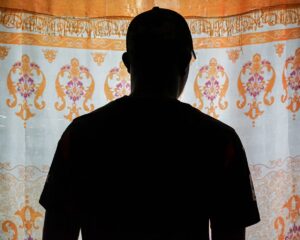
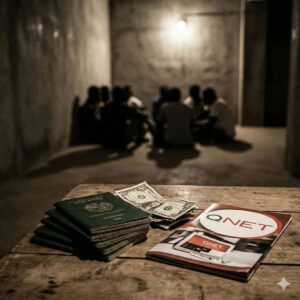
QNet in Ghana: BBC Investigation, EOCO Raids, and Avoiding the Scam
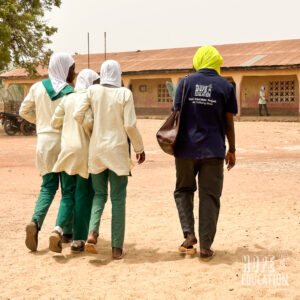
Hope Education Project UK Is now a registered charity
